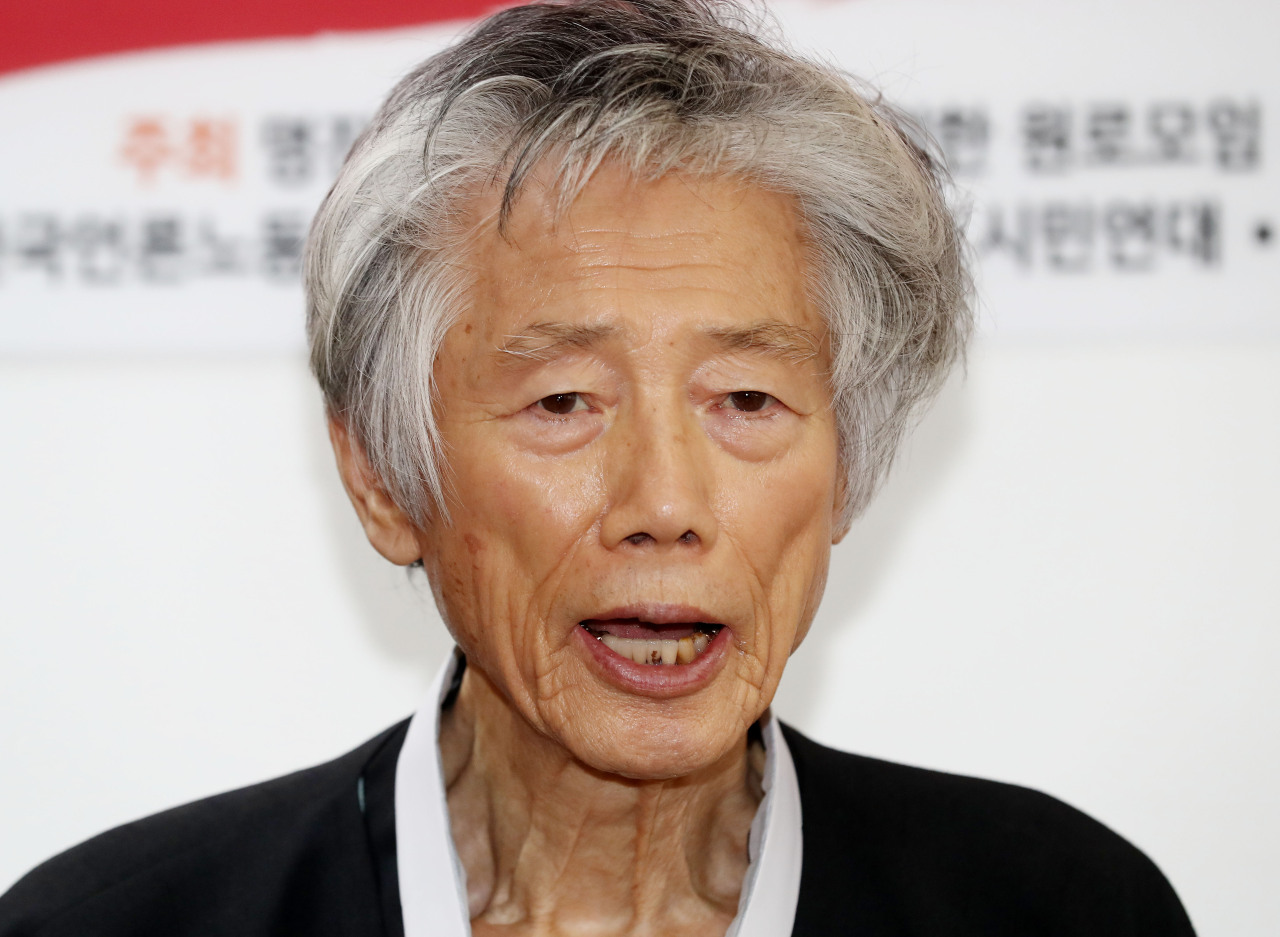Inter-Korean reunification activist Paek Ki-wan dies at 88
By YonhapPublished : Feb. 15, 2021 - 09:03

Paek Ki-wan, who devoted his life to the reunification of the two Koreas and labor and social issues, died in hospital Monday, hospital officials said. He was 88.
According to Seoul National University Hospital and his aides, Paek had been in the hospital since January of last year with symptoms of pneumonia.
Born in 1932 in what is now Unnyul in North Korea's South Hwanghae Province, he came to the South in 1946 after graduating from elementary school there.
Suffering emotional distress due to family separation during the move, he taught himself about reunification and other social issues. He later started to educate the illiterate, poor and farmers, as well as to work to reunify the divided peninsula.
In 1964, he protested against the signing of the treaty on basic relations between South Korea and Japan, and founded in 1967 an institute dedicated to the philosophy of Kim Gu, a highly respected leader of the independence movement against Japan and a reunification activist.
He was put behind bars several times for protesting against authoritarian governments and for advocating workers' rights. In 1974, he was imprisoned for violating the emergency rules of the authoritarian Constitution enacted by strongman Park Chung-hee that were designed to enable him to remain in power indefinitely.
To further his conviction that the country should care more about the poor and day-wage workers, he stepped into domestic politics.
In 1987, he briefly ran in the presidential race, but he dropped out eventually. Five years later, he made another unsuccessful presidential bid as an independent.
After a brief, unsuccessful stint in politics, he founded an institute for reunification based on which he also launched various social and labor campaigns.
Paek had been a fierce activist and nationalist until recently, spotted at high-profile protest sites, always wearing the traditional Korean outfit of hanbok.
He joined the massive protests against sending South Korean soldiers to Iraq and signing the Free Trade Agreement with the United States. He also did not miss a single weekly protest held in downtown Seoul from October 2016 until April the following year to remove former President Park Geun-hye from her post.
He wrote numerous novels, essays and poems, as well as the lyrics of "March for the Beloved," a famous pro-democracy movement anthem.
He was survived by his wife, three daughters and one son. (Yonhap)








![[Hello India] Hyundai Motor vows to boost 'clean mobility' in India](http://res.heraldm.com/phpwas/restmb_idxmake.php?idx=644&simg=/content/image/2024/04/25/20240425050672_0.jpg&u=)










